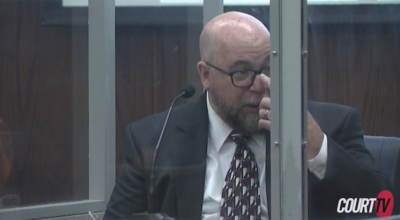
The department of revenue is imposing a fraud on all Tennesseans who have cars registered with the departrment via tag, so they can use their cars commercially. (Photo Google)
CHATTANOOGA, Tenn., Dec. 20, 2023 — I am getting hearings before Tennessee revenue commissioner David Gerregano and his authority to suspend registration of a car absent a crash and without a hearing as to his actions under the “mandatory insurance” law.
By David Tulis / NoogaRadio Network
I put scare quotes around “mandatory insurance” because we are an “after crash” state, according to two court decisions, and an update of the law in 2015 does not alter the infrastructure of the law or change the nature of its insurance requirements for motorists.
I am appealing to a commissioner who is “vested with power to prescribe rules and regulations not inconsistent with law,” Tenn. Code Ann. § 67-1-102, which authority I allege Cmsr. Gerregano is abusing. He has authority to “[a]dminister the assessment and collection of privilege taxes” Tenn. Code Ann. § 67-1-102. A hearing is held whenever any person is aggrieved” Tenn. Code Ann. § 67-1-105 by a revocation of a car registration since that car is used in commerce subject the state privilege tax scheme.
Deleting registration of my Honda Odyssey minivan (a solid 300,000 miles it has given my family) is a harm and injury, an “adverse action *** taken to implement any revenue *** registration law administered by the commissioner.”
The hearing will be handled by what Karyn Hill, a legal assistant in the administrative hearing office, calls an administrative hearing, aka a contested case hearing.
Who is the opposing party? Whom will answer my claims? The “commissioner may personally hold such hearings as the commissioner may deem proper.” Tenn. Code Ann. § 67-1-105. Usually the hearing is judged by an agency employee as hearing officer
After hearing all evidence of fact, and all submissions of law, the hearing officer “shall make findings of fact, conclusions of law and proposed settlements or orders based thereon for submission to the commissioner.” Tenn. Code Ann. § 67-1-105.
Underbelly of beast
The hearing on my claims against Mr. Gerregano’s policy will be judged according to agency policy. I will be arguing, instead, for the law. I will describe the law and its limits. I allege these limits are being ignored, and that the revenue department is administering the financial responsibility act as if the general assembly made major changes in the law in 2015 — when it didn’t. The 2015 “James Lee Atwood law,” updating the 1977 financial responsibility law, allows for quicker monitoring of insureds between state agencies and insurance company partners. “Nothing in this part shall alter the existing financial responsibility requirements in this chapter.” The law lets police, deputies and troopers soak up data from insurance company databases to allow for monitoring of those people who are under administrative discipline following a crash and who are compelled to have insurance as a condition of maintaining registration on their cars.
People want to keep registration on their cars, in legal sense, so they can use the cars in commerce. They keep registration on their cars, in a practical sense, to avoid police lawlessness and violence.
Cops everywhere impose warrantless false imprisonment and false arrest and seizure of cars on people who do not submit themselves to the fraudulent interpretation of the financial responsibility law as touted by all parties, starting with insurance policy salesmen.
The statute clicks in upon a motorist the moment that the last spiraling hubcap stops spinning with a th-wunk on the pavement and the echo of the crash stops reverberating off nearby office buildings. Until then, the financial responsibility law does not apply to any Tennessee car user, whether he be a private traveler or a driver/operator under Title 55, the motor vehicle law.
I doubt the law applies to any private traveler whatsoever, but don’t have to prove that right now. For my present purposes, I show only that it doesn’t apply to any driver or operator (licensee, with car registered with the state because of commercial for-hire use, or because of mistake).

